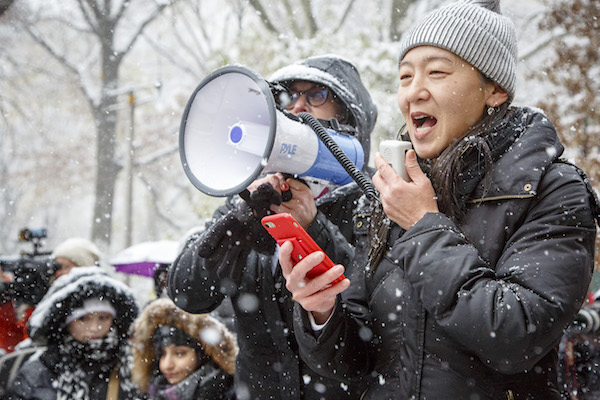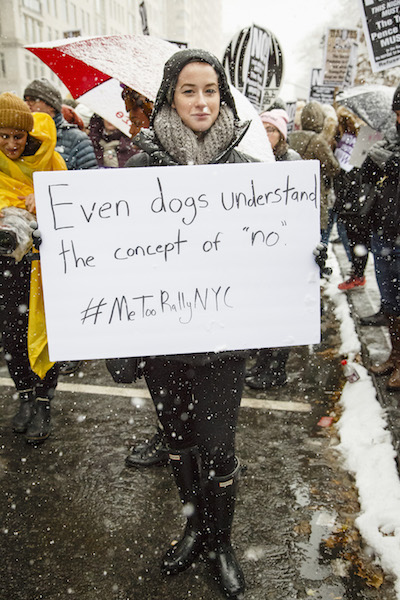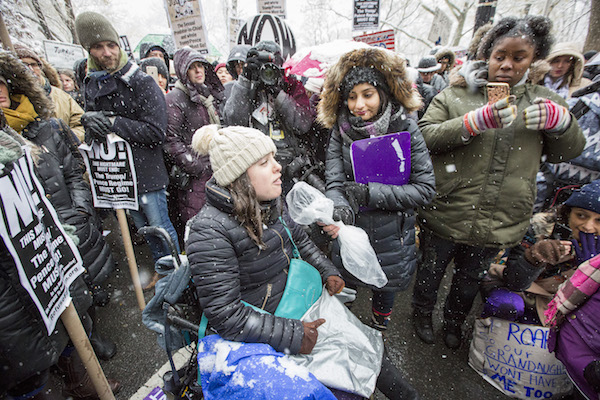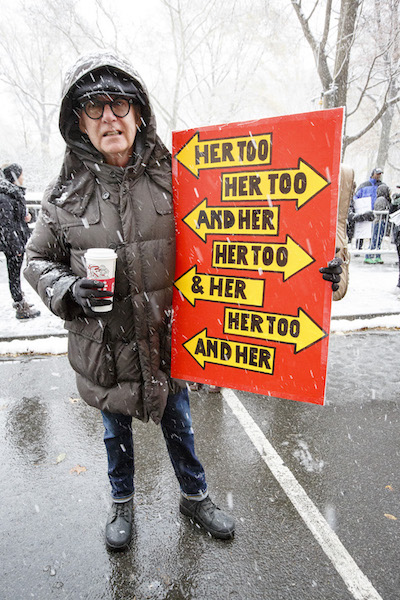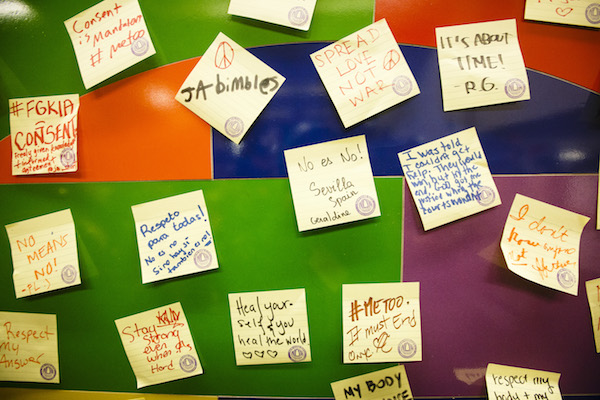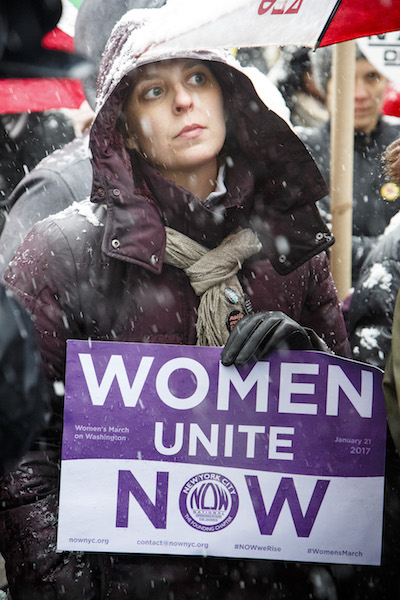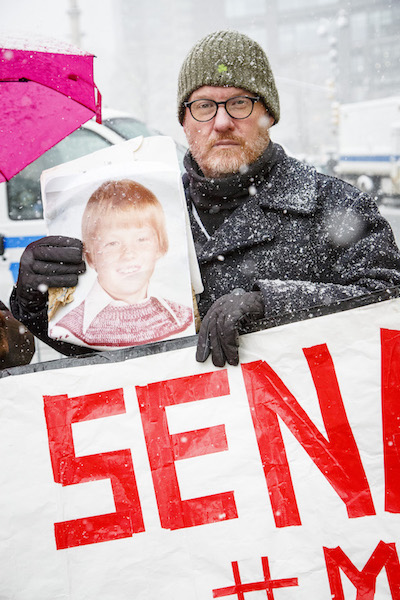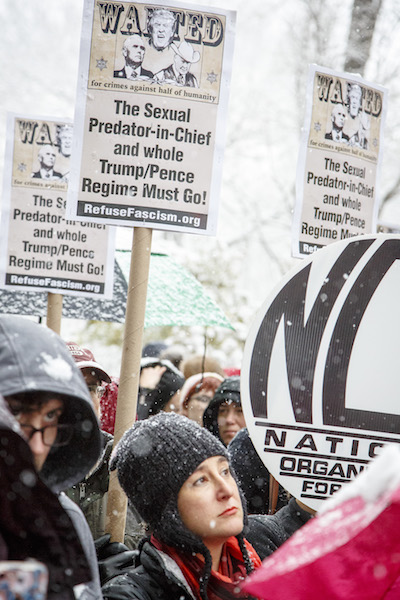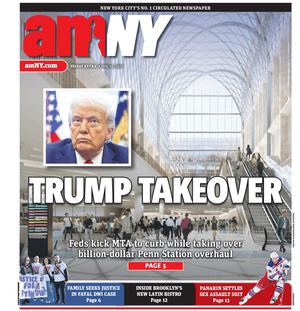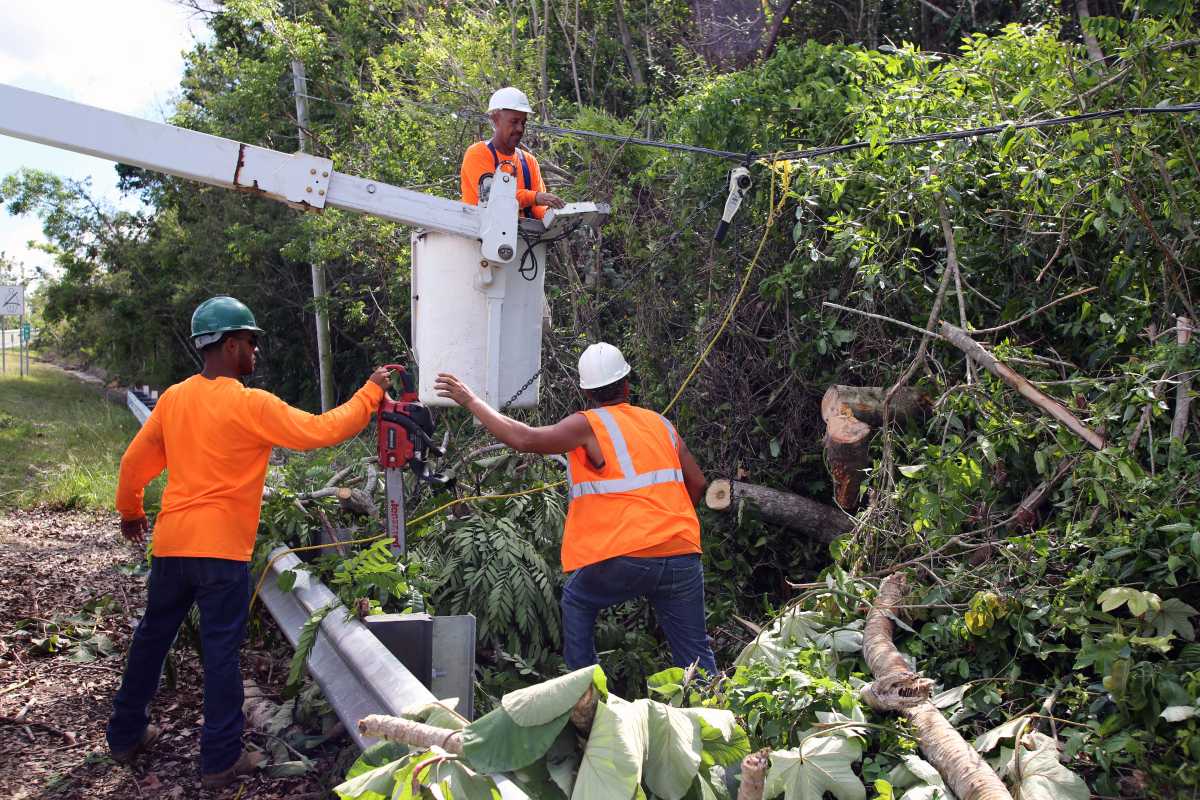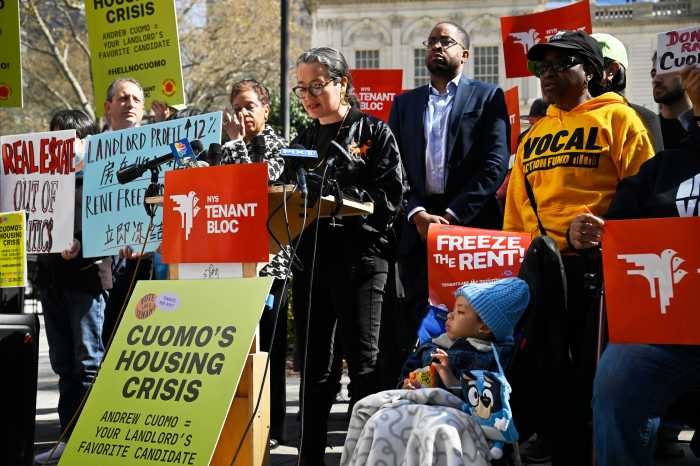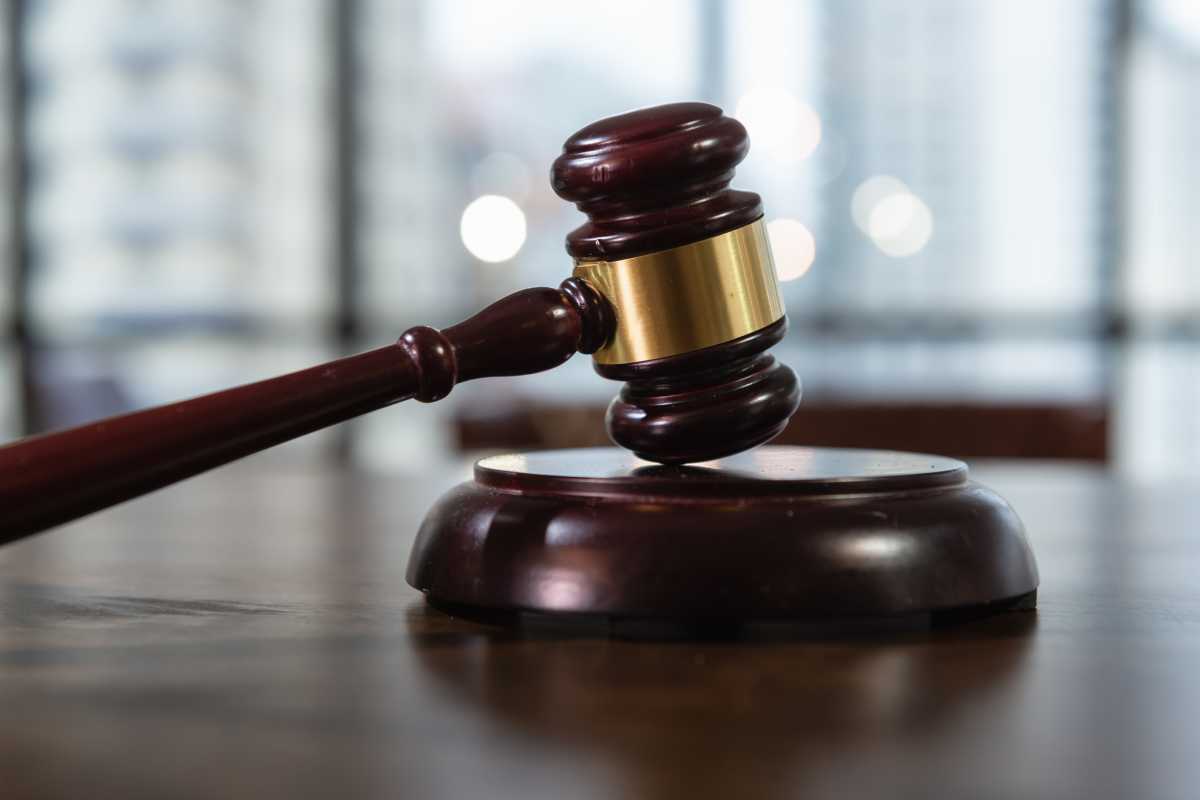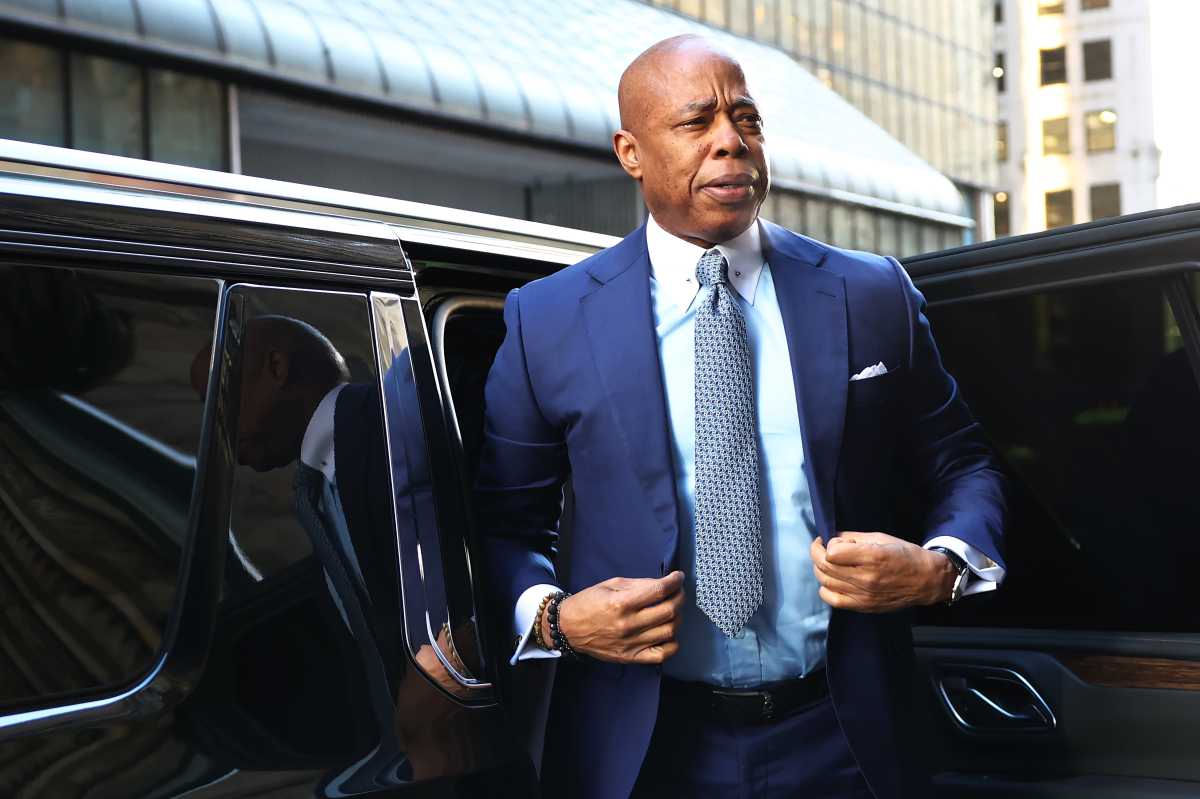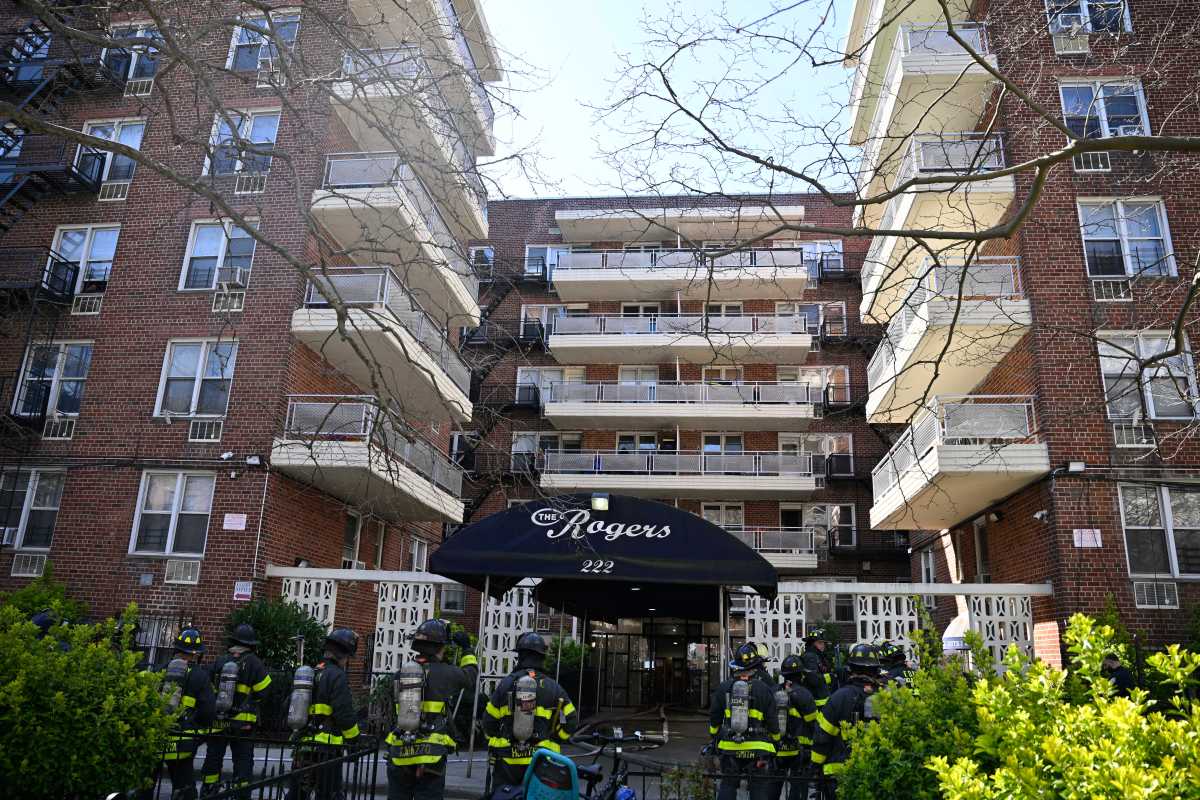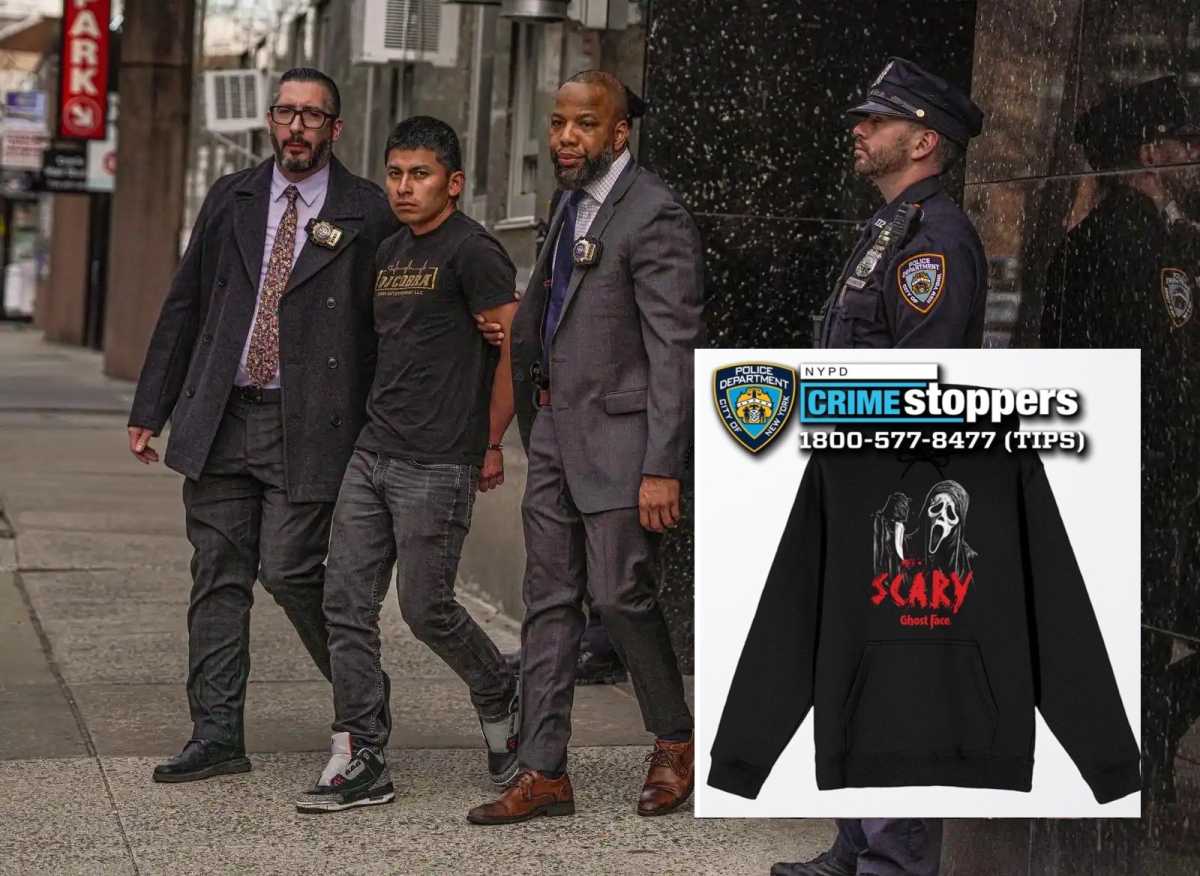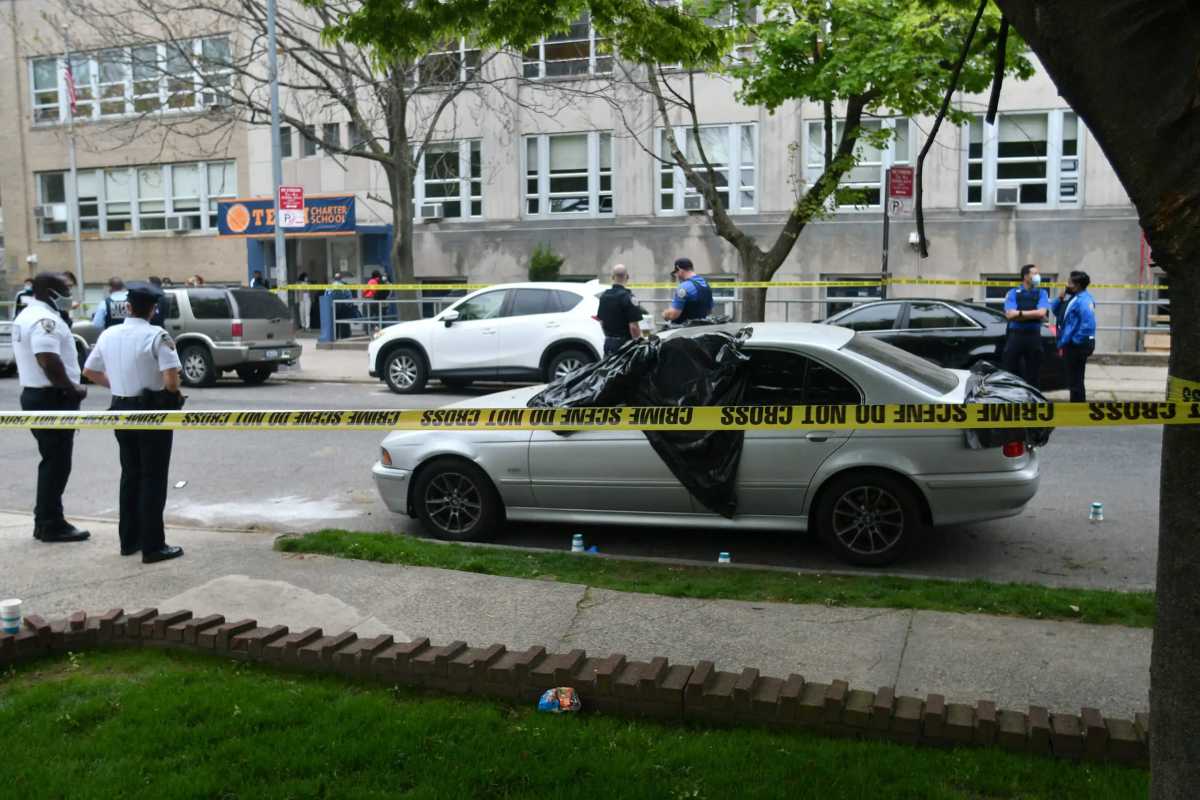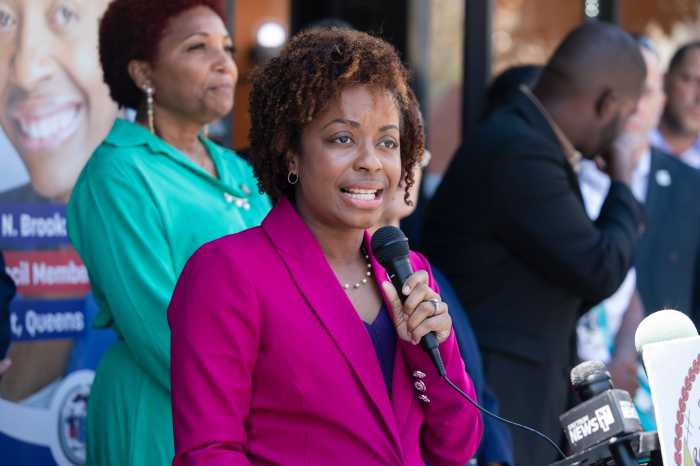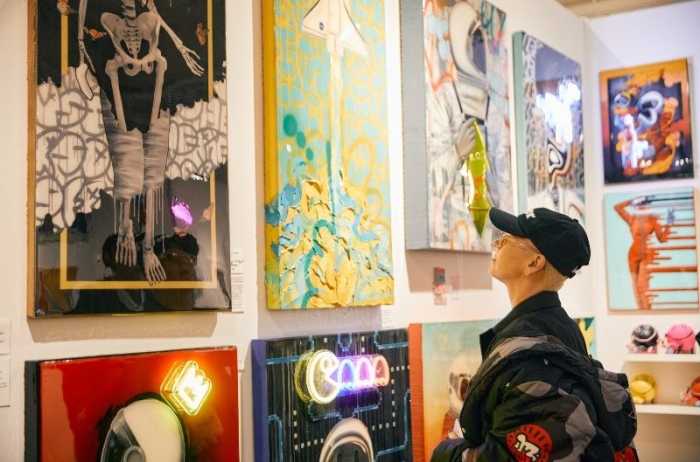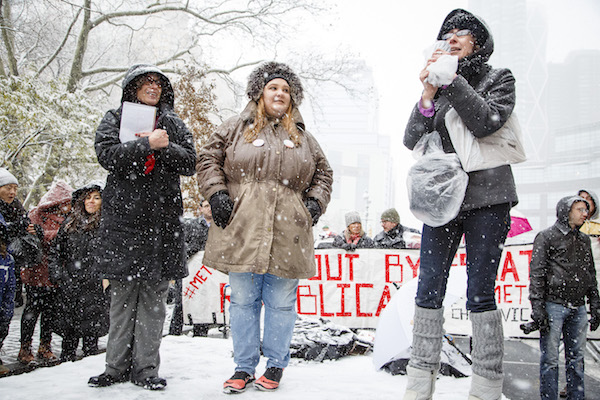
BY REBECCA FIORE | Call them silence breakers, call them warriors, or call them survivors — but neither snow nor wind nor hail stopped them from rallying together on the afternoon of Sat., Dec. 9, outside Trump International Hotel and Tower at Columbus Circle.
United to end sexual harassment and assault for women and men of all ages and backgrounds, #MeToo Rally NYC was organized by Connie Vasquez and Annmarie Haubert, two women who faced their own experiences with sexual assault and were brought together by the ubiquitous hashtag.
“I was 14 the first time. Then I was 17. Then I was 21. Even as recently as three months ago,” Haubert said. “I want to change the way that everybody looks at sexual assault. I want to stop the victim blaming.”
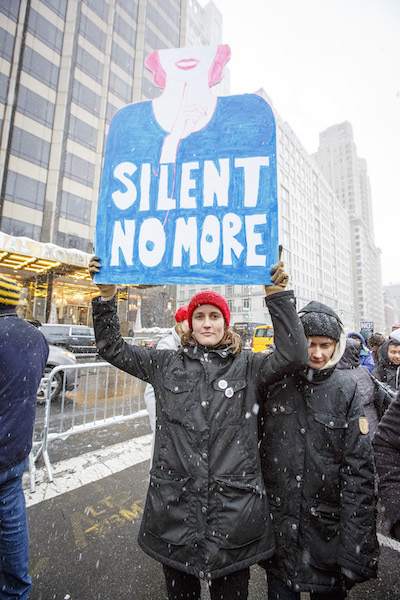
The #MeToo movement started with activist Tarana Burke and was re-popularized by actress Alyssa Milano, who used it as a hashtag in response to Hollywood producer and sexual predator Harvey Weinstein. A crowd of roughly 150 people held handmade, snow-covered signs including: “#MeToo,” “Even dogs understand the concept of ‘no,’ ” and “SILENT NO MORE.” Refuse Fascism handed out signs that read “The Sexual Predator-in-Chief and whole Trump/Pence Regime Must Go!”
Some speakers pointed toward the Trump hotel during their speeches. Elizabeth Cronise McLaughlin, a woman’s leadership coach, attorney, and host of Resistance Live, a political podcast, shared her story of child sexual abuse. She said from ages 12 to 16 she was “groomed and repeatedly molested by a family therapist who also happens to be a long standing friend of my parents.” When she was 19 she took him to court, to have his practicing license removed. She lost her case, because there were no witnesses, she said.
“As I lay naked under my abuser, while my soul hung out in the trees outside of his office, I suddenly knew with a force that could not be denied that a day would come when I would rise to fight,” she said. “That day, deep within my little girl soul, a warrior was born. And to this day that spirit guides everything I do, in every way I choose. So make no mistake, I’m a warrior now.”
“Thanks to this,” she said, as she gestured toward the high-rise overlooking Central Park, “We are all warriors now.”
On Mon., Dec. 11, three of the numerous women who came forward with accusations of sexual misconduct against then-candidate Donald Trump held a press conference to reassert those charges and — emboldened by the #MeToo movement — call for congressional scrutiny of the president. While the White House has deemed these allegations as “fake news,” some members of congress, including New York State Senator Kirsten Gillibrand, called for Trump’s resignation.
A mere three days after the rally, Trump tweeted about “lightweight” Gillibrand, calling her “someone who would come to my office ‘begging’ for campaign contributions not so long ago (and would do anything for them), is now in the ring fighting against Trump.”
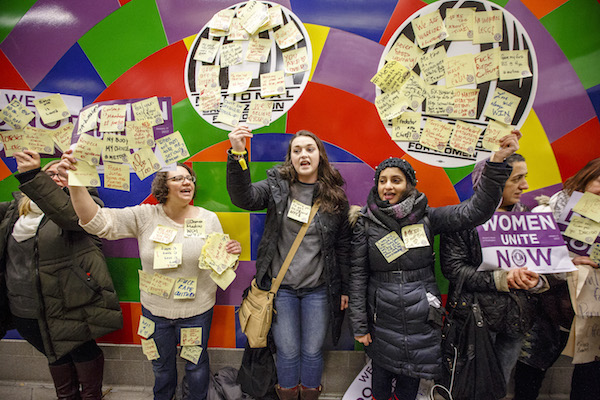
Many of the speakers, like McLaughlin, are survivors-turned-advocates, men and women, young and old, of all backgrounds and creeds. People from different organizations like the National Organization for Women (NOW), the Feminist Press, Black Women’s Blueprint, Inc., EndAbuse4Good, Protect NY Kids, and New Yorkers Against Hidden Predators (NYAHP) discussed the various aspects of the movement.
Sonia Ossorio, president of NOW-NY, said she wanted to have an emphasis on intersectionality at the rally and even brought her nine-year-old daughter along with her on stage. She said it was important for her to understand democracy and how she should use her voice to fight for it.
She also said it was crucial for men to start becoming part of the conversation.
“We talked a lot about engaging men on the subject. This is the time to engage them,” she told this publication.
Robert Ayers, a retired university professor, came as an ally for his wife, a rape survivor. He said he felt this movement was part of a larger demonstration against the Trump administration.
“This is part of a resistance. The resistance to those people who have introduced a regime into this country… where the very basis of civilization is under threat,” he said. “I am here to support women. I am here to support civilized relationships between human beings. The fact that we are standing outside one of Trump’s properties makes it all the more appropriate.”
Ayers brought a sign he made (reading “HER TOO”), with arrows pointed in different directions. He said he wanted to strengthen the position of the people at the rally, to further legitimize the cause.
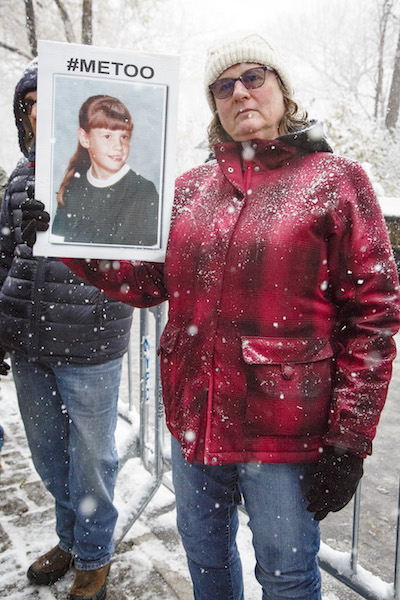
Some of the signs had a more personal touch to them. Both Karen Levine and Shaun Dougherty held pictures of themselves as children, the age when they were first molested.
Levine’s sign had a picture of her at a young age on one side and on the back a picture of the family doctor who repeatedly sexually assaulted her. This is the first #MeToo rally she’s attended.
“This has been going on far too long,” she said. “[The movement] inspired me in a lot of ways. It’s inspired me to believe that I have nothing to be ashamed of. You can know that in your head but it takes a long time to know that in your heart. That’s why I appreciate all these women and this movement that helped me do that.”
Dougherty held up a picture of his 10-year-old self. He said he’s been waiting 37 years for a #MeToo rally, and that it wasn’t until a couple of years ago that he finally came forward with his own experiences.
“I’m a Navy veteran. I swore an oath to protect the Constitution of the United States,” he said. “President Trump had five deferments to Vietnam. My cousin did not have a deferent to Vietnam. I’m an American veteran, I’m a child sex abuse survivor, and I’m standing outside his hotel in the snow to fight for my justice while he gets flown around on Air Force One.”
Dougherty is also a member of NYAHP who is working towards getting the Child Victims Act passed in the state. This bill would eliminate the statute of limitations for sex crimes against children.
The veteran added, “The most useful thing that anyone can do for a victim of sex abuse is to believe and support them. That’s what they are looking for, belief and support and understanding.”
Joyce M. Short, a sexual abuse survivor, advocates for a nationwide agreement on what consent means.
“It’s freely given, knowledgeable, and informed agreement,” she said, which mirrors her hashtag #FGKIA. “There are other forms of agreement and people will try to fool you into thinking you’ve consented when you’ve only agreed, maybe you assented, maybe you acquiesced. Those are other forms of agreement… but when you are drugged, even if you nod your head and say ‘Yes,’ are you consenting? No!”
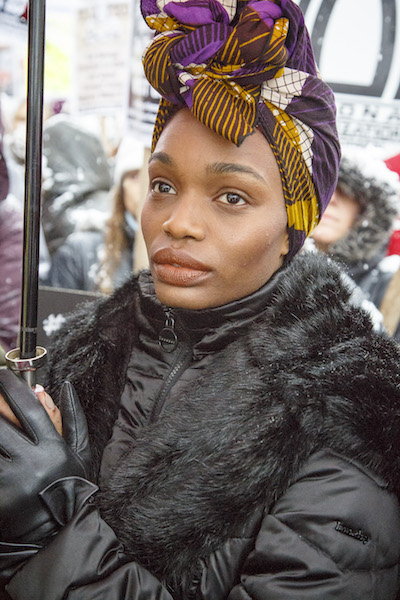
Erika Dickerson, assistant executive director of Black Women’s Blueprint Inc., a civil and human rights organization, explained that not only is the #MeToo movement different for women of color, but also people dealing with poverty and varying immigration statuses. She reminded the crowd that a public #MeToo isn’t an option for everyone.
“No significant change can be made if we simply talk about the symptoms,” she said. “Sexual assault and sexual harassment are only symptoms and manifestations of the patriarchy… We can talk about rape all we want, but until we address the multiple generational trauma of patriarchy we will fall short of a goal of stopping men’s violence against each other, against women, and against gender non-conforming persons.”
Days after the rally, Republican candidate Roy Moore, who not only has been accused of sexual misconduct by nine women, many of whom were minors at the time, but who also was endorsed by President Trump, lost the Dec. 12 special election to Democrat Doug Jones.
While Jones will be the first Democrat representing Alabama in the senate in the past two decades, he only won by about 20,000 votes, and in large part from the state’s heavily black-populated areas. (In the days leading up to the election, Barack Obama and Charles Barkley were among those voicing their support for Jones.)
Moore’s stunning loss, widely seen as a rebuke to the moral turpitude of his candidacy, validated a predictive statement made by Dickerson at Saturday’s rally: “So speak out, sister survivors. Then our speaking out will permit other women to speak, until laws are changed and lives are saved and the world is altered forever.”
